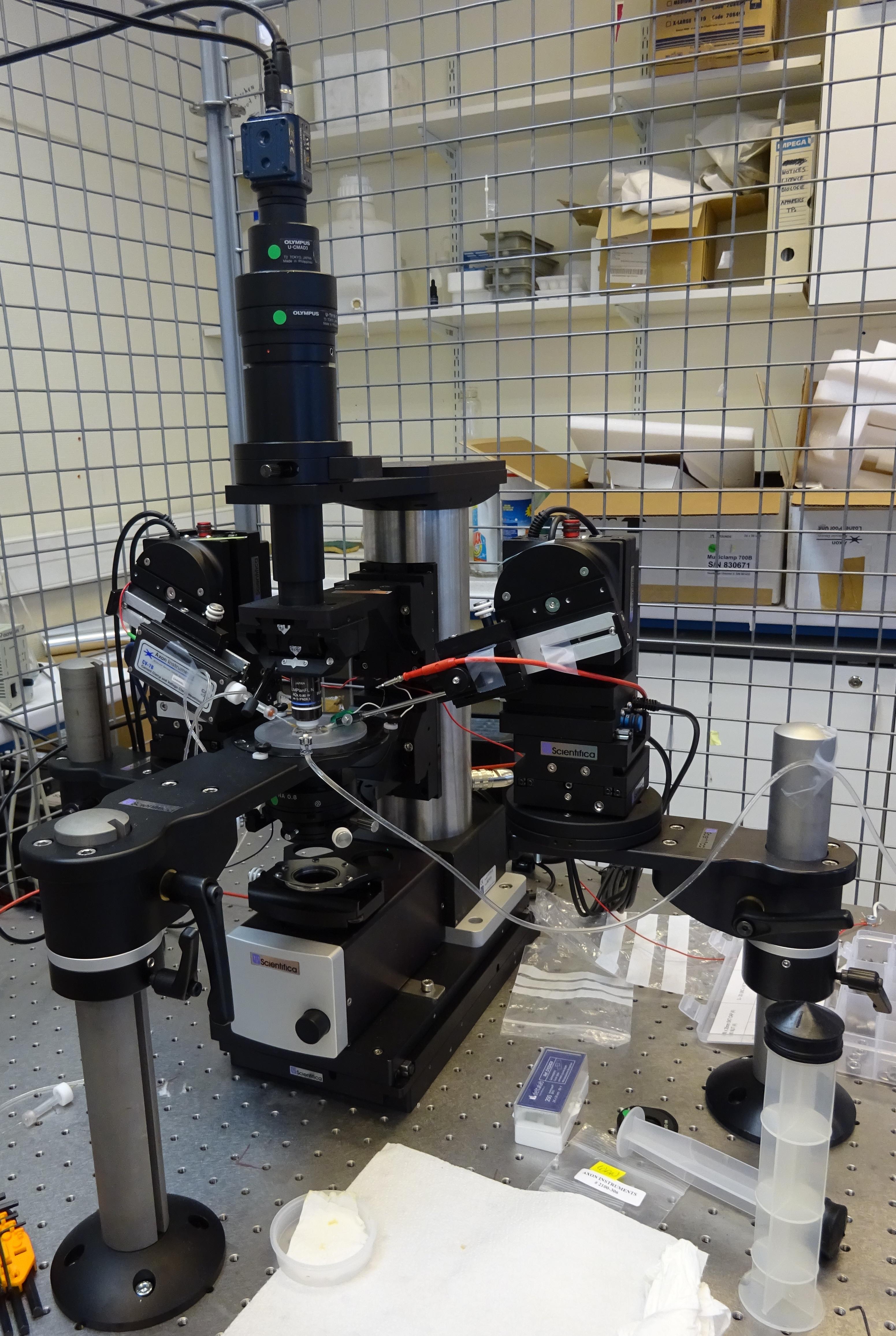Neurophysiology
Master in Life Sciences, ENS
UNBIO1-072 | Neurophysiology
Year and Semester : M2 | S1
Where : Biology department, ENS
Duration : 4 full weeks | 24h lectures -| 90h workshops
First and last day of class : September 8-October 3, 2025
Hours : 9:30 - 17:00 or later, depending on the experiments
Maximum class size : 12 students
— 2024-2025 planning —
Coordination
Mariano Casado, Biology department, ENS
Régis Lambert, SU
Credits
12 ECTS
Keywords
Neurophysiology | Electrophysiology | Experimental setup | ex-vivo | in-vivo | Patch-clamp | Extracellular recordings | Specific data analysis | Electronics for electrophysiologists.
Course prerequisites
Solid grounds on Neuroscience at the molecular, cellular and network levels.
Course objectives and description
Aims : This course aims at providing a complete theoretical and practical grounding in the electrophysiological techniques underlying modern research in Neurophysiology.
Themes : Neurons are excitable cells that "express" themselves mainly through electrical signals. These signals (membrane potential changes, current flow through ion channels ...) take place on a very fast time scale, of the order of milliseconds. The nature and speed of these signals impose strong constraints on experimental approaches for studying the physiology of neurons. The two disciplines best adapted to the requirements of Neurophysiology are electrophysiology and cellular imaging techniques. This course will focus on electrophysiology.
Organisation : During the course, students will use existing experimental facilities at the ENS and SU, but they will also assemble for themselves experimental setups adapted to the different planned experiments. They will perform pilot experiments and analyze data. In addition, students will produce a written report of a research project / grant proposal that would make use of the techniques seen during the course. This project will be defended in a presentation in November.
Assessment
50% written examination at the end of the fourth week.
50% evaluation of the research project.
Course material
Material will be provided shortly before and during the course.
Support
Scientifica provides top-notch user-friendly electrophysiology equipment for this course.
Suggested readings in relation with the module content
“Electronics for electrophysiologists”, by B Barbour : link
Teaching team
Mariano Casado (ENS-Biology)
Régis Lambert (SU)
Boris Barbour (ENS-Biology)
Guillaume Dugué (ENS-Biology)
Philippe Faure (CNRS-ESPCI)
Marie Gendrel (ENS-Biology)
Clément Léna (ENS-Biology)
Fabio Marti (SU)





